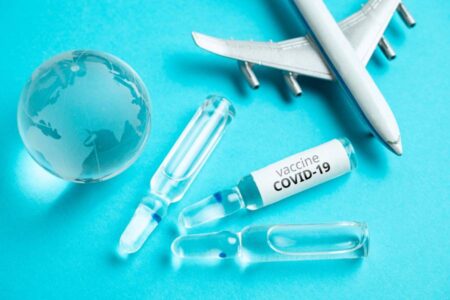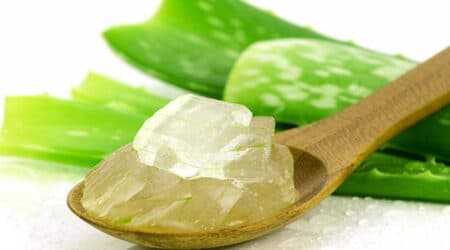Vitamin D: 5 Healthy foods rich in vitamin D
Vitamin D is an essential nutrient that is required by the body for several functions to run appropriately.
Appreciation for vitamin D is at an all-time high these days.
Especially in countries like the UK, where the sun scarcely shines and in irregular intervals, people are more conscious than ever about the body’s requirement for the vitamin.
What does the sun have to do with a nutrient? You may wonder. And you would be one of the rare few who does (‘appreciation for vitamin D is at an all-time high’, remember?).
Vitamin D is naturally produced by your body when the skin is exposed to sunlight.

While it is lovingly referred to as the ‘sunshine vitamin’ for this reason, sometimes, it can be unfeasible to get the vitamin from the sun.
For one, like in the UK, there may not be sufficient sunlight where you live.
The NHS actually recommends that people residing in the UK take vitamin D supplements during the autumn and winter months.
Another reason may, in fact, be too much sun. Overexposure to the sun will increase your risk of developing skin cancer.
If you live in a hot or tropical location, it is best to avoid going out when the sun is at its peak. And when you do go out, it is strongly recommended that you use sunscreen.
You might like...
Why does the body need vitamin D?
Your body primarily needs vitamin D to maintain bone, teeth, and muscle health.
In addition, the body also needs vitamin D to help the immune system keep functioning in a healthy manner.
Vitamin D deficiency can result in serious health issues, which include:
- Infections
- Immune system disorders
- Autoimmune disorders like multiple sclerosis
- Several types of cancer, including breast cancer and prostate cancer
- Heart disease
- Bone deformities in young children
Further reading: 14 common vitamin D deficiency symptoms
Foods that contain vitamin D
Now that we have settled that the best source of vitamin D is the sun and that it is not always feasible to get the essential vitamin from the sun, let us look at food sources.
There are some incredibly nutritious choices when you are on the market for foods that contain vitamin D.
However, it is highly unlikely that you will be able to meet the body’s vitamin D requirements through food alone.
More on that later. Now, let’s explore the vitamin D-rich food options.
Mushrooms
Mushrooms are possibly the only plant-sourced option that contains enough vitamin D to benefit the body.
Mushrooms will synthesize the vitamin when exposed to sunlight, similar to the human body.
The only caveat is that you will be able to receive only vitamin D2 from mushrooms.
Vitamin D2 can contribute to blood levels of the vitamin. However, vitamin D3 is more effective.
If you were to eat mushrooms with the intention of acquiring vitamin D, be sure to purchase wild mushrooms like morels.
Farmed mushrooms are mostly cultivated in dark areas and thus contain little to no vitamin D.

Salmon
Salmon is a very popular and widely available fish in the UK.
And it is a great source of vitamin D.
Like mushrooms, the wild variety of salmon is a better source of the vitamin.
However, unlike mushrooms, even farmed salmon can help your body receive some vitamin D.

Eggs
To be specific, the source of vitamin D is egg yolks.
The whites of eggs are where all the proteins are, but the yolk contains all the vitamins and minerals.
A large egg’s yolk contains enough vitamin D to cover the 5% daily value of the body’s requirement.
However, the quantity of vitamin D can be much higher in eggs from chickens that are given enriched feed.
Eggs from free-range hens that receive regular exposure to the sun will also have higher amounts of vitamin D.

Canned tuna
Tuna from a can is extremely convenient. It is easy to store, has a long shelf life, and is quite affordable.
And to boot, canned tuna is delicious.
Canned tuna is also rich in vitamin D. You may be able to acquire up to 34% of your body’s daily requirement from a can of light tuna.
However, tuna also has high levels of mercury. Therefore, you should not eat too much tuna over a short period of time.
Mercury is a heavy metal that can become highly toxic if it builds up within your body.
The recommended amount of canned tuna is one serving each week.
Herring
Herring is a small fish, but it is big on vitamin D.
With fresh herring, you can rest assured knowing that a 100 gm serving can contribute up to 27% of the daily requirement.
If you would rather have your herring smoked or pickled, your body will still receive some vitamin D, albeit a little less than it would from fresh herring.
Vitamin D supplements
All the food we listed in the course of this article contains more vitamin D than almost all other things we eat.
However, you cannot provide your body with the vitamin D it requires through diet alone.
Eating the right food only works if your skin also receives an appropriate amount of sunlight to be able to synthesize the vitamin.
This is where supplements come into play. The NHS recommends everyone take 10 micrograms of vitamin D during the months of autumn and winter when sunlight is rare.
Keep reading: Why vitamin D is essential for muscle recovery
Get a blood test
Related Articles

Covid: Will vaccines be essential for future holidays?
The steady COVID-19 vaccine rollout and the lockdown lifting has renewed hopes for the summer holidays. After maintaining strict social...
New Digital Pandemic Travel Advice Portal
Advice for flying from the UK VIVO Clinic launches a comprehensive Covid-19 travel advice and information portal for UK travellers....
Natural Remedies to Stop Hair Loss
We all want a full head of hair. Sometimes hair loss can be genetic, but pollution, stress, and chemicals can significantly damage the...1,000,000
Customers
Felt so comfortable and welcome. Explained in detail about my treatment and took the time to interact.
Very professional and friendly. The HIFU treatment was very comfortable and I felt relaxed.
Have more appointments booked so looking forward to my next visit.
Thank you again you are absolutely fantastic 😀
 close
close








